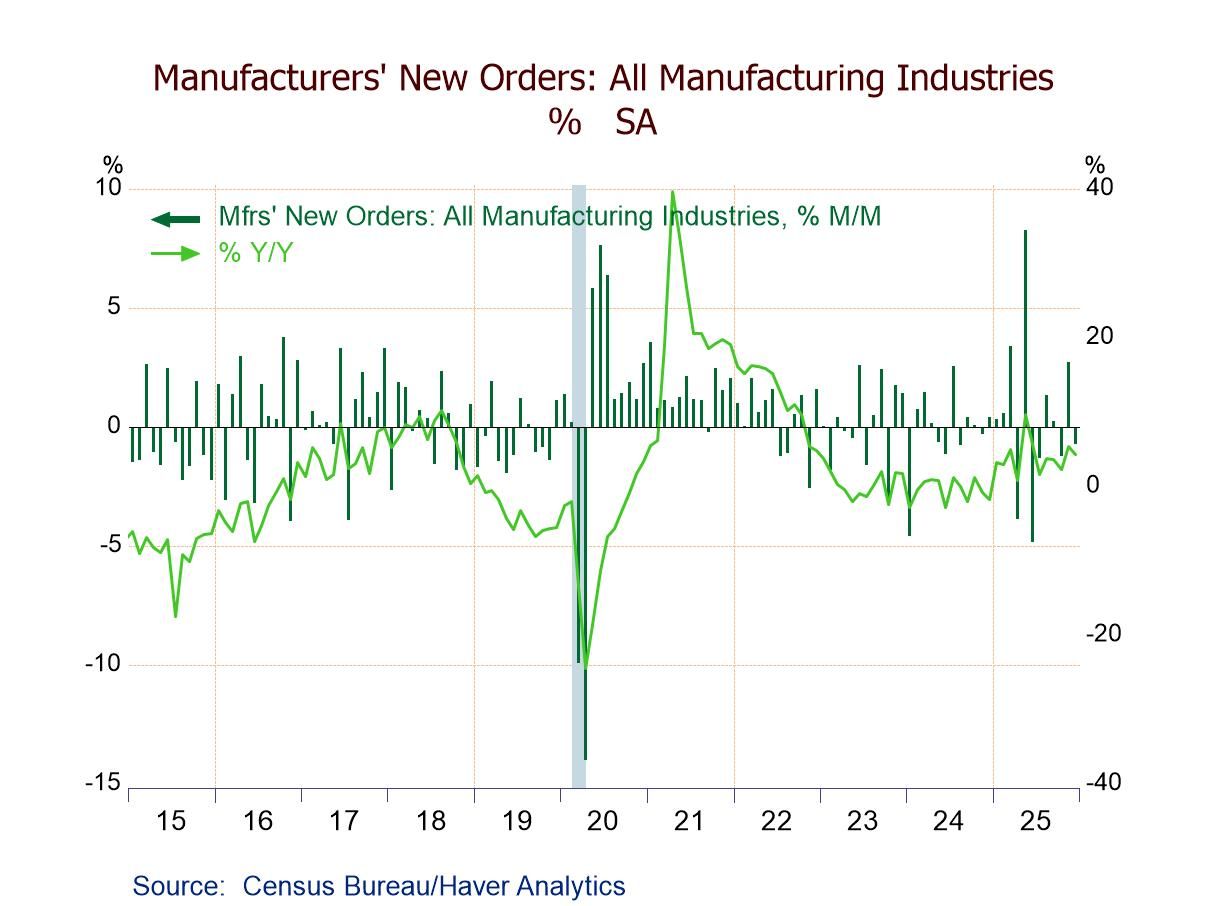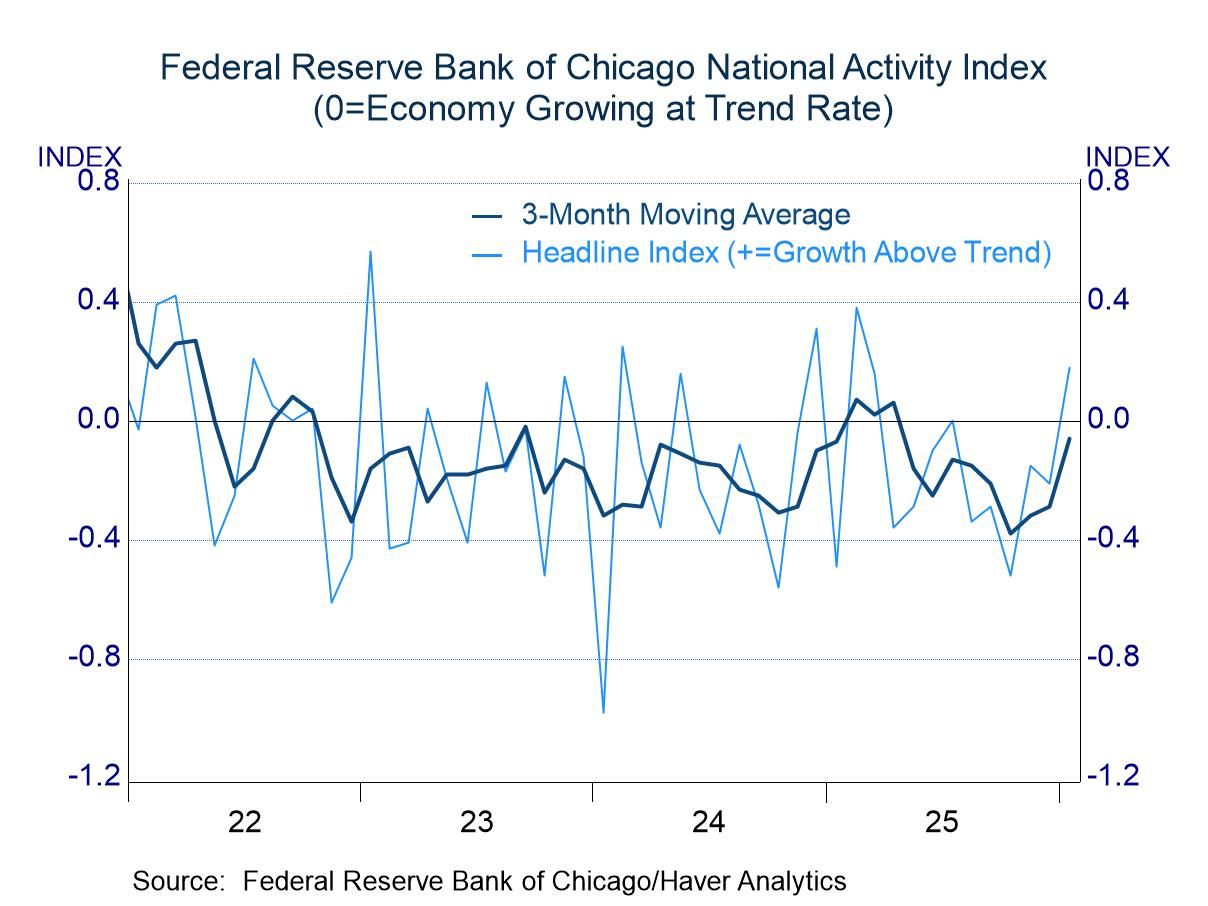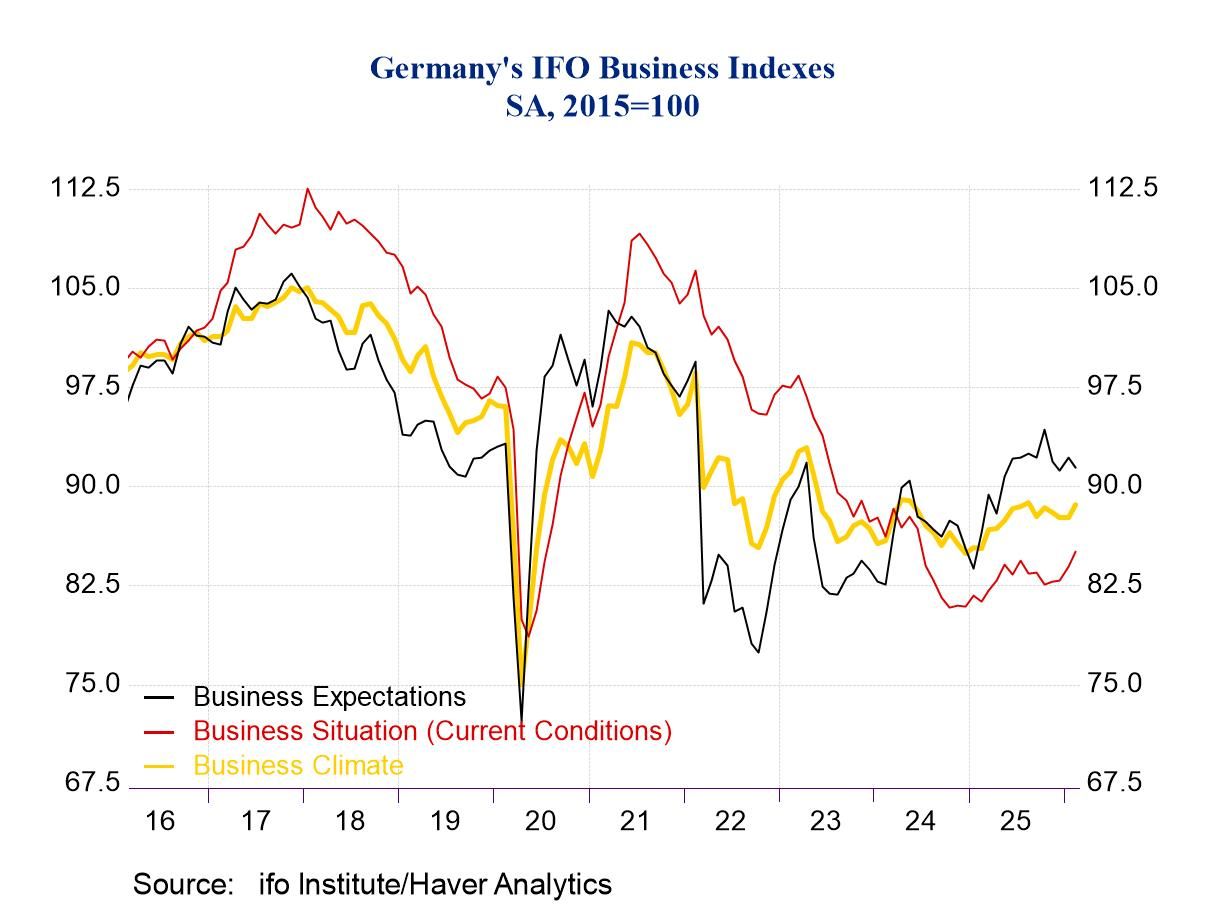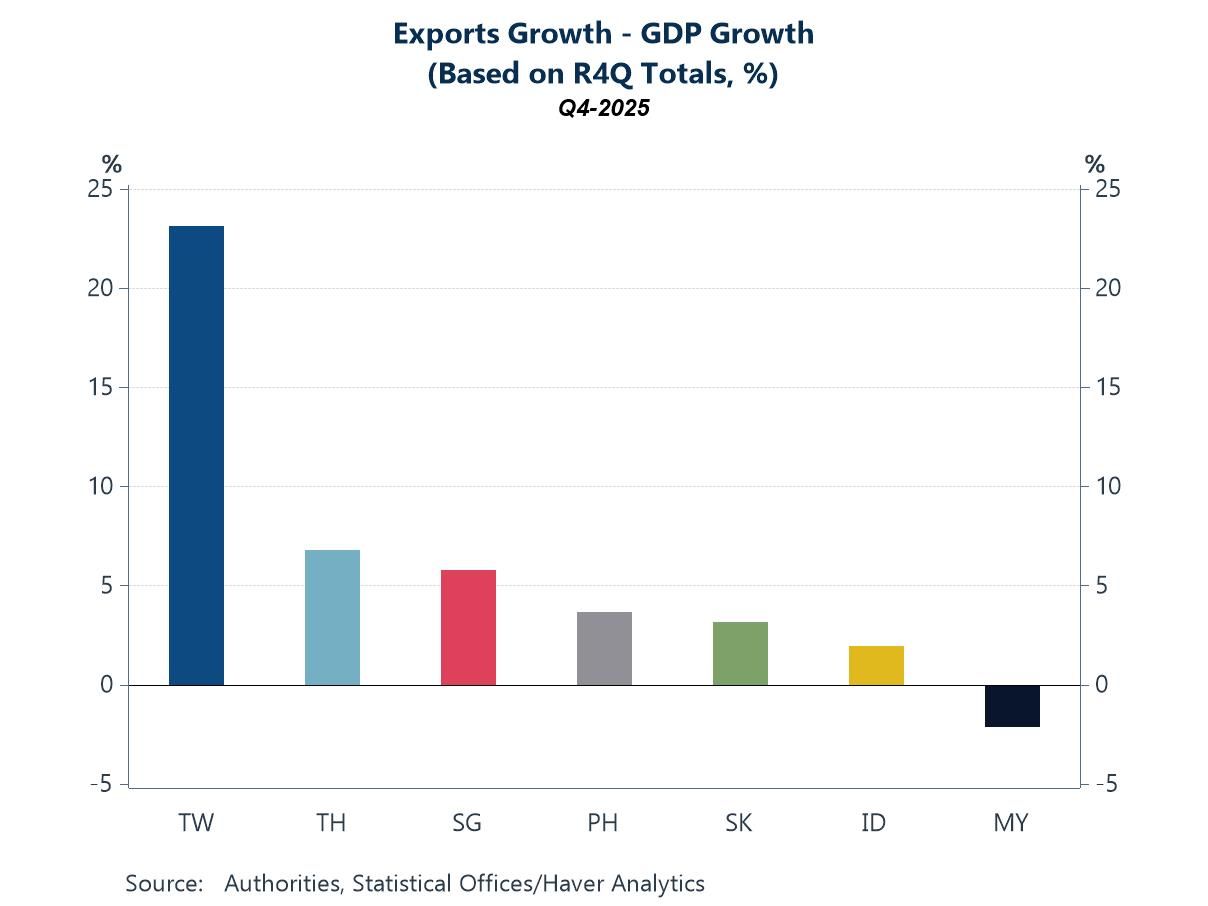 Global| Jan 06 2010
Global| Jan 06 2010ADP Report:U.S. December Payroll Employment Decline Is Smallest Since March 2008
by:Tom Moeller
|in:Economy in Brief
Summary
Though private sector payrolls fell again last month, the 84,000 worker decline was the least since March 2008. The latest report from the payroll processor ADP, in their National Employment Report, indicated that the December decline [...]
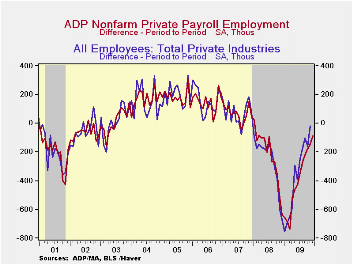 Though
private sector payrolls fell again last month, the 84,000 worker
decline was the least since March 2008. The latest report from the
payroll processor ADP, in their National Employment Report, indicated
that the December decline in private nonfarm payrolls followed a
145,000 November drop that was less than initially reported. The latest
reading was the twenty-third consecutive monthly decline. For 2009 as a
whole payrolls fell by 4.4% which was the sharpest in the series' brief
eight year history.
Though
private sector payrolls fell again last month, the 84,000 worker
decline was the least since March 2008. The latest report from the
payroll processor ADP, in their National Employment Report, indicated
that the December decline in private nonfarm payrolls followed a
145,000 November drop that was less than initially reported. The latest
reading was the twenty-third consecutive monthly decline. For 2009 as a
whole payrolls fell by 4.4% which was the sharpest in the series' brief
eight year history.
ADP
compiled the estimate from its database of individual companies'
payroll information. Macroeconomic Advisers, LLC, the St. Louis
economic consulting firm, developed the methodology for transforming
the raw data into an economic indicator.
ADP reported that the decline in service-producing
industry employment
ended last month with a gain of 12,000 (-2.5% y/y). It was the first
rise since March of 2008. Small-sized payrolls grew 11,000 (-2.1% y/y)
while medium-sized payrolls rose 10,000 (-2.7% y/y). These increases
were offset by a 9,000 decline (-2.8% y/y) in large service producing
payrolls. 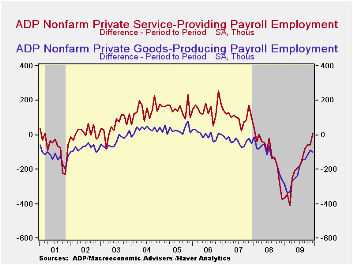 The U.S.
Bureau of Labor
Statistics will report December payroll employment this Friday. For comparison, the November decline of
145,000 in ADP's measure of private nonfarm payrolls was accompanied by
a loss of 18,000 jobs in the BLS measure of private sector payrolls.
According to ADP and Macro-Advisers, the
correlation between the monthly percentage change in the ADP estimate
and that in the BLS data is 0.90.
The U.S.
Bureau of Labor
Statistics will report December payroll employment this Friday. For comparison, the November decline of
145,000 in ADP's measure of private nonfarm payrolls was accompanied by
a loss of 18,000 jobs in the BLS measure of private sector payrolls.
According to ADP and Macro-Advisers, the
correlation between the monthly percentage change in the ADP estimate
and that in the BLS data is 0.90.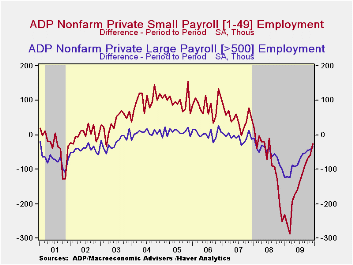 In the
goods
producing sector employment fell 96,000 during December (-12.0% y/y)
and that was deeper than the November drop. Nevertheless, the
three-month annual rate of decline eased again to -6.4% versus -17.3%
at its worst last March. Small-sized payrolls fell 36,000 (-11.9% y/y),
about the same as a 35,000 drop (-11.7% y/y) in medium-sized payrolls.
Large payrolls fell 25,000 (-12.7% y/y). In the manufacturing sector
alone, payrolls fell 43,000 (-11.0% y/y). That was about the same as
the November decline but the three-month change moderated to -4.9% from
-17.4% last March.
In the
goods
producing sector employment fell 96,000 during December (-12.0% y/y)
and that was deeper than the November drop. Nevertheless, the
three-month annual rate of decline eased again to -6.4% versus -17.3%
at its worst last March. Small-sized payrolls fell 36,000 (-11.9% y/y),
about the same as a 35,000 drop (-11.7% y/y) in medium-sized payrolls.
Large payrolls fell 25,000 (-12.7% y/y). In the manufacturing sector
alone, payrolls fell 43,000 (-11.0% y/y). That was about the same as
the November decline but the three-month change moderated to -4.9% from
-17.4% last March.
| ADP National Employment Report | December | November | October | Y/Y | 2009 | 2008 | 2007 |
|---|---|---|---|---|---|---|---|
| Total Nonfarm Private Payroll Employment (m/m Chg., 000s) | -84 | -145 | -178 | -4.2% | -4.4% | -0.5% | 1.2% |
| Small Payroll (1-49) | -25 | -59 | -69 | -3.6 | -3.8 | -0.0 | 1.6 |
| Medium Payroll (50-499) | -25 | -44 | -65 | -4.5 | -5.0 | -0.5 | 1.2 |
| Large Payroll (>500) | -34 | -42 | -44 | -5.0 | -5.1 | -1.6 | -0.1 |
Tom Moeller
AuthorMore in Author Profile »Prior to joining Haver Analytics in 2000, Mr. Moeller worked as the Economist at Chancellor Capital Management from 1985 to 1999. There, he developed comprehensive economic forecasts and interpreted economic data for equity and fixed income portfolio managers. Also at Chancellor, Mr. Moeller worked as an equity analyst and was responsible for researching and rating companies in the economically sensitive automobile and housing industries for investment in Chancellor’s equity portfolio. Prior to joining Chancellor, Mr. Moeller was an Economist at Citibank from 1979 to 1984. He also analyzed pricing behavior in the metals industry for the Council on Wage and Price Stability in Washington, D.C. In 1999, Mr. Moeller received the award for most accurate forecast from the Forecasters' Club of New York. From 1990 to 1992 he was President of the New York Association for Business Economists. Mr. Moeller earned an M.B.A. in Finance from Fordham University, where he graduated in 1987. He holds a Bachelor of Arts in Economics from George Washington University.



